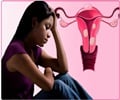Heavy or prolonged menstrual bleeding during menopause may be a key factor in fatigue.

The dynamics of stress and fatigue across menopause: attractors, coupling, and resilience
Go to source).
‘Did You Know?
Heavy periods during menopause may be making you more tired! #menopause #irondeficiencyanemia #medindia’





Heavy periods during menopause may be making you more tired! #menopause #irondeficiencyanemia #medindia’
Advertisement
Link Between Menopause and Fatigue
According to Ohio's CLEVELAND (March 12, 2025)—Women who have several menopausal symptoms may feel exhausted. Among them are discomfort, depression, sleep issues, and hot flashes. According to a recent study, midlife women are two to four times more likely to suffer from devastating forms of syndromic fatigue, which may be explained by excessive or extended monthly flow (2✔ ✔Trusted SourceThe Menopause Transition: Signs, Symptoms, and Management Options
Go to source).
Advertisement
How Heavy or Prolonged Bleeding Affects Energy Levels
Changes in the quantity and length of monthly flow are common among women going through menopause, and many describe bouts of heavy (HMB) or prolonged (PMB) menstrual bleeding that fit the criteria for abnormal uterine bleeding (AUB). One in three women going through menopause experienced episodes of abnormal uterine bleeding (AUB), according to the Study of Women's Health Across the Nation (SWAN).Few previous research have addressed AUB despite its high prevalence, and none have sought to connect AUB during the menopause transition with fatigue or a general decline in quality of life. Iron deficiency anemia, a known cause of fatigue, is specifically associated with heavy menstrual flow.
Why Awareness and Early Treatment Are Crucial
Even after controlling for other variables, a large research of 2,300 midlife women revealed that heavy (HMB) or protracted (PMB) monthly bleeding following menopause raises the risk of fatigue. More clinical awareness of bleeding abnormalities is urged by researchers, particularly when weariness is indicated. Early diagnosis is essential since iron deficiency anemia is curable. Unusual bleeding is overlooked despite its significance. Experts stress informing women about possible health risks.References:
- The dynamics of stress and fatigue across menopause: attractors, coupling, and resilience - (https://pubmed.ncbi.nlm.nih.gov/29189603/)
- The Menopause Transition: Signs, Symptoms, and Management Options - (https://pubmed.ncbi.nlm.nih.gov/33095879/)
Source-The Menopause Society














